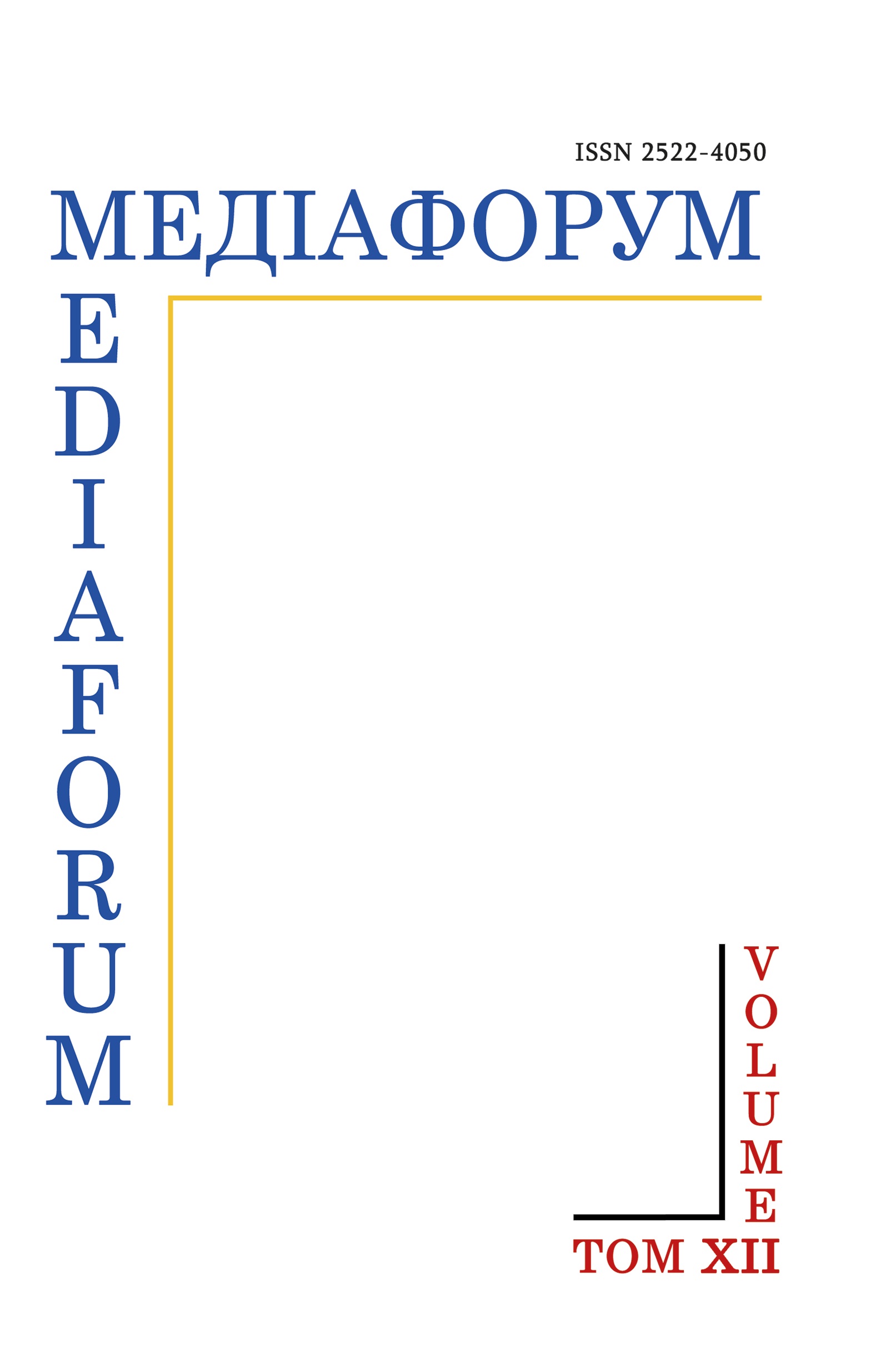Civil Society Control over the Use of Digital Technologies in the Electoral Process in the Context of European Integration
DOI:
https://doi.org/10.31861/mediaforum.2023.12.170-181Keywords:
EU, e-democracy, digitalisation, elections, referendum, civil societyAbstract
The digital revolution has changed the way we participate in democracy, in particular how we vote and participate in political discourse; however, it has also given rise to new types of electoral irregularities that can become a source of political crises and instability. The EU seeks to strengthen control over elections, their transparency and monitoring in order to maximise the democratic participation of citizens. Citizens’ digital participation in the election process can increase voter turnout, improve accuracy and efficiency, and ensure greater transparency and accountability. However, it is essential to ensure the safe and transparent use of digital technologies and that citizens have access to information and resources that will allow them to participate fully in the electoral process.
Civil society plays a critical role in ensuring that elections are free, fair and transparent and in monitoring/observing the use of digital technologies in the electoral process. By providing oversight, observation, advocacy, and education of election participants, civil society can help ensure that the electoral process is accessible, fair, and reflective of the people’s will.
Downloads
References
Committee of Ministers. 2009. Rec. CM/Rec(2009)1 of the Committee of Ministers to member states on electronic democracy (e-democracy). 1049th meeting of the Ministers’ Deputies. 2009. 18 February 2009. https://www.coe.int/t/dgap/goodgovernance/Activities/Key-Texts/Recommendations/Recommendation_CM_Rec2009_1_en.asp
European Commission. 2016. Press Release: European Commission and IT Companies announce Code of Conduct on illegal online hate speech. 31 May 2016. https://ec.europa.eu/commission/presscorner/detail/en/IP_16_1937
EU, Euratom. 2019. Regulation (EU, Euratom) 2019/493 of the European Parliament and of the Council of 25 March 2019 amending Regulation (EU, Euratom) No 1141/2014 as regards a verification procedure related to infringements of rules on the protection of personal data in the context of elections to the European Parliament PE/14/2019/REV/1. https://eur-lex.europa.eu/legal-content/EN/TXT/PDF/?uri=CELEX:32019R0493
Gil De Zúñiga, H., Veenstra, A., Vraga, E. & Shah, D. 2010. “Digital Democracy: Reimagining Pathways to Political Participation.” Journal of Information Technology & Politics 7:1, 36-51. https://doi: 10.1080/19331680903316742
Hintz, A. 2004. “Media Actors at the Dividing Lines of Information Society: Civil Society Media at the World Summit on the Information Society.” Forum Barcelona 2004. Сommunication and Cultural Diversity. Barcelona 24-27 May 2004. https://www.portalcomunicacion.com
Kankiya, David. 2022. “Map of Violations 2022: Summary”. Golos, 19 September. https://golosinfo.org/en/articles/146204
Lindner, R. Aichholzer, G. 2020. “E-Democracy: Conceptual Foundations and Recent Trends.” In the European E-Democracy in Practice. Studies in Digital Politics and Governance. Aichholzer, G., Lindner, R., Nielsen, R. (ed.). Springer, Cham. Р. 11–45. https://link.springer.com/chapter/10.1007/978-3-030-27184-8_2
Mishra, S. S. 2020. “Testing the antecedents to e-democracy towards citizens’ happiness: a structural equation modelling approach to ‘MyGov’ initiative, India.” International Journal of Public Administration 43(15), 1293–1303. https://doi.org/10.1080/01900692.2019.1669051
Norris, Pippa. 2013. “Does the World Agree about Standards of Electoral Integrity? Evidence for the Diffusion of Global Norms.” Electoral Studies 32 (4): 576–588.
PACE. 2012. Res. 1897 (2012) of October 2, 2012 Ensuring greater democracy in elections Parliamentary Assembly. 3 October 2012. 32nd Sitting. https://pace.coe.int/en/files/19121/html
Troitiño, D. R. 2023. “EU Election and Internet Voting (i-voting).” In the Digital Development of the European Union: An Interdisciplinary Perspective. Р. 319-334. https://books.google.com.ua/books?hl=uk&lr=&id=CX7GEAAAQBAJ&oi=fnd&pg=PA349&ots=eExl3UqUXs&sig=GHai6Viv9qb-FDboN69jUII6APQ&redir_esc=y#v=onepage&q&f=false
EU, Euratom. 2018. COUNCIL DECISION. 2018/994 of 13 July 2018 amending the Act concerning the election of the members of the European Parliament by direct universal suffrage, annexed to Council Decision 76/787/ECSC, EEC, Euratom of 20 September 1976. https://eur-lex.europa.eu/legal-content/EN/TXT/HTML/?uri=CELEX:32018D0994&from=EN
European Commission. 2018. Brussels, 5.12.2018 JOIN(2018) 36 final. Action Plan against Disinformation. https://ec.europa.eu/digital-single-market/en/news /action-plan-against-disinformation














